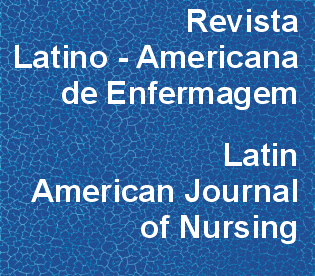Puerperal infection from the perspective of humanized delivery care at a public maternity hospital
DOI:
https://doi.org/10.1590/S0104-11692007000400003Keywords:
puerperal infection, parturition, humanizing deliveryAbstract
This is an epidemiological, prospective and non-concurrent study of the cohort type about puerperal infection from the perspective of humanized delivery care, based on information from 5,178 records of patients who went through the experience of humanized delivery. The study aimed at describing the women who underwent humanized delivery, determining the incidence and time for manifestation of puerperal infections and investigating the association between the infection and the risk factors. An accumulated puerperal infection rate of 2.92% was found. The risk factors associated to puerperal infection in Cesarean delivery were the duration of labor and the number of digital examinations. No variable behaved as a risk factor for infection in normal delivery. Cesarean delivery was an important risk factor for puerperal infection. The results reinforce the need to develop alternative forms of delivery care that provides effective conditions for normal delivery, in order to reduce the number of Cesarean sections.Downloads
Download data is not yet available.
Downloads
Published
2007-08-01
Issue
Section
Original Articles
License
RLAE’s authorship concept is based on the substantial contribution by each of the individuals listed as authors, mainly in terms of conceiving and planning the research project, collecting or analyzing and interpreting data, writing and critical review. Indication of authors’ names under the article title is limited to six. If more, authors are listed on the online submission form under Acknowledgements. The possibility of including more than six authors will only be examined on multicenter studies, considering the explanations presented by the authors.Including names of authors whose contribution does not fit into the above criteria cannot be justified. Those names can be included in the Acknowledgements section.
Authors are fully responsible for the concepts disseminated in their manuscripts, which do not necessarily reflect the editors’ and editorial board’s opinion.
How to Cite
Puerperal infection from the perspective of humanized delivery care at a public maternity hospital. (2007). Revista Latino-Americana De Enfermagem, 15(4), 536-542. https://doi.org/10.1590/S0104-11692007000400003



